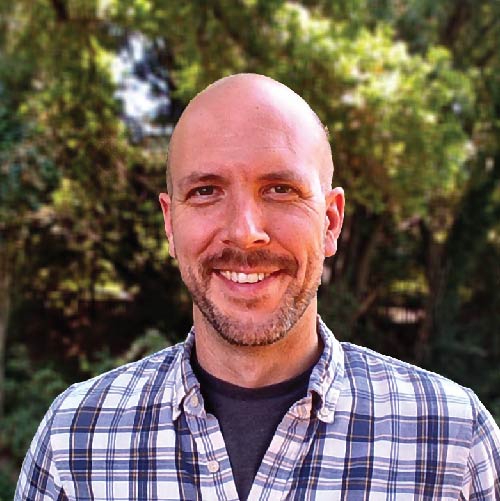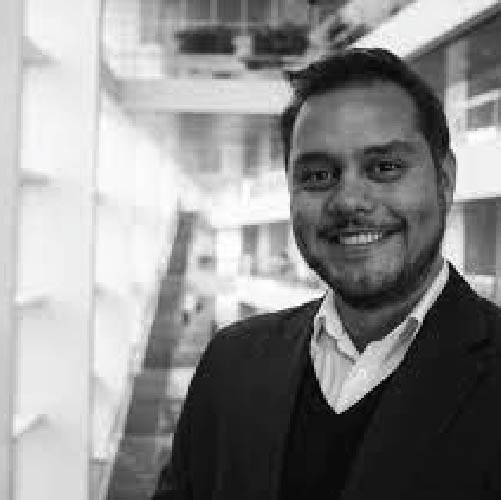Research Projects
Loyola University Chicago’s Joan and Bill Hank Center for the Catholic Intellectual Heritage (CCIH) supports research by full-time Loyola University faculty on topics concerned with or connected to the Catholic intellectual heritage. The primary purpose of this support is to facilitate advanced scholarly study of Catholic thought as it touches upon the arts, humanities, and sciences.
Application Information
Research projects can be proposed as either a semester or year-long research commitment, and by either individuals or groups or researchers. Grants are typically awarded to projects with specific concerns connected to Catholic thought and practice, Ignatian intellectual and pedagogical heritage, and social justice in the Catholic tradition.
All research projects are expected to culminate in the publication of a journal article or book or other relevant output. Proposals can request support for a wide variety of scholarly activities, including archival research, book manuscript support, data collection, the planning of a conference, or supported field work. Applicants should keep in mind, however, that all research funds will be paid out in the form of supplemental salary, as the Hank Center does not process reimbursements for this award. This means that funds cannot be used to pay personnel, whether they be staff, students, or research subjects.
Awardees are expected to report on the progress of their research and participate in any activities the CCIH develops to communicate this research—both inside and outside of Loyola University. Successful applicants are expected to submit a mid-year research progress report and a final report that describes the outcomes of the funded research.
Research project funding includes taxable awards of up to $6000 for individual projects, with larger amounts available for group proposals. Funds are disbursed directly to awardees in two installments in the form of supplemental salary, and may be used to offset travel expenses, book purchases, etc. Funds may not be used to pay personnel, including staff, other faculty, students, or other research collaborators or participants.
Applications for projects taking place during Academic Year 2025-2026 will be due in January 2025, and will be submitted through our application portal.
A completed application will include:
Project Description (of 900-1200 words) outlining the nature and scope of the project. This description should succinctly indicate the following elements:
- Statement of significance, including principal research question(s) and proposed methodology
- Outcomes: what the project aims to accomplish
- Outputs: what deliverables will result from project activities (e.g. publication, colloquium, conference, interdisciplinary course, or lecture series).
- Capacity for success: why project personnel are well-positioned to achieve project outcomes and deliver project outputs
- Alignment: wow the project is aligned to the Catholic/Ignatian intellectual (artistic, humanistic, cultural, scientific) heritage, and the mission of the Hank Center
Project timeline: provide a rough timeline for your project.
Project Budget: provide a one-page project budget with budget justification. Budget items can include a stipend paid to yourself, as well as funds to offset travel, subvention fees, books, and other material costs necessary to conduct research. Note, however, that all funds are paid out as supplemental salary, and therefore cannot be used to pay personnel, whether they be staff, students, or research subjects. Finally, computers are not supported by these funds because of the University Computer Replacement program. Please direct questions about allowable expenses to Joe Vukov, Associate Director of the Hank Center, at jvukov@luc.edu
CV
Approval from Department Chair (to be completed through application portal)
All applications are reviewed and evaluated by the Hank Center Advisory Board. Proposals are judged based not only on the merit of the project in relation to topics of Catholic/Ignatian intellectual concern, but also the project’s clarity, focus, intended objectives, and likelihood of completion. The announcement of awards is made at the beginning of March with the funding period taking place during the following academic year (August to June).
Please direct any questions to Joe Vukov, Associate Director of the Hank Center, at jvukov@luc.edu.
Current Projects
|
Gabriela Buitrón Vera Lecturer of Spanish, Department of Modern Languages, Loyola University Chicago. |
Indigenous Deities and Catholic Prayer: an Undocumented Immigrant Cry for Help in the memoir Solito (2022) by Javier Zamora This project specifically investigates how institutions like the Catholic church have become a symbol of sanctuary for undocumented immigrants in the United States. It draws from this aspect and examines the importance of divinity for undocumented immigrants depicted in Javier Zamora's memoir Solito (2023). To this end, this research sheds light on how characters in this book use 1) Catholic rituals for well-being and 2) ancestral oral teachings for coping with uncertainty. Parts of my research findings will be presented at upcoming national and international conferences. In addition, the results from this project will help me create one new course: “Migration and the Divine.” |
|
Jeffrey Fisher Lecturer, Department of Philosophy, Loyola University Chicago |
The Origins of Social Justice: Aristotle, Aquinas, and Taparelli Over the past few decades, the phrase ‘social justice’ has become central to much political discourse. Today, many people—both critics and proponents of social justice—view it as a specifically progressive ideal. The term ‘social justice’, however, was coined by a 19th century Jesuit Thomist, Luigi Taparelli (who, somewhat ironically, was often derided as a reactionary or conservative), and through Taparelli’s work and influence, it became a central plank of Catholic Social Teaching. Taparelli employed it to describe and to extend what Aquinas called “general” or “legal” justice, a notion which Aquinas himself inherited from Aristotle’s discussion of justice in the Nicomachean Ethics. My project is to recover and articulate this Aristotelian account of social justice, by tracing its development from Aristotle, through Aquinas, and into Taparelli. |
|
Guillermo Sanhueza Associate Professor, School of Social Work |
Faith-based organizations and the reintegration of the incarcerated: mapping out initiatives, analyzing their possibilities and challenges in Chicagoland The promotion of dialogue between faith and contemporary culture, as well as the preferential attention towards the poorest are two aspects where the Catholic Church has emphasized in recent years (National Catholic Reporter, 2022; America Magazine, 2019). In the US, in particular, one group that has been historically marginalized are the incarcerated (Bellin, 2022). Indeed, the US puts behind bars more people per capita than any other country in the world, especially African Americans, with devastating effects (Beckett & Goldberg, 2022; Wildeman & Wang, 2017). To respond to this so-called “mass incarceration” phenomenon (Wacquant, 2017), many people of faith, alongside with others of good will have been implementing initiatives aimed to support formerly incarcerated individuals as they return to their communities (Levad, 2019; Erzen, 2017). Our pilot, previous work in Chicagoland has shown that, among the reentry programs, there are many that identified themselves as faith-based initiatives, yet from various denominations and degrees of an explicit message. At the same time, most of them seemed rooted in a religious message of compassion, justice, and second chances (Sanhueza & Christensen-Cabrera, 2023). Beyond good intentions, though, one modern criterion for analyzing such initiatives with the lens of reason has to do with contemporary social science, in general, and program evaluation in particular. Through these lens, well-intended purposes must be accompanied by a certain “logic of work” to make sure that actions taken are consistent and possibly beneficial for society and for participants themselves. Thus, this research project aims to map out current faith-based initiatives in Chicagoland; to understand how they are currently working; and to analyze possibilities and challenges that faith-based organizations face for a successful reintegration. |
|
Phyllis Ann Solari-Twadell PhD, RN, MPA, FAAN Associate Professor, Marcella Niehoff School of Nursing. |
The Long-Term Impact of an International Service Immersion for Nursing Students Focused on Spiritual Care There have been twelve International Lourdes Service Immersions completed with a thirteenth scheduled for May 2025. Over the years, there have been over one hundred and thirty traditional nursing students who have participated in the Lourdes Service Immersion. This international service engages nursing students in week-long service to pilgrims from around the world assisting these pilgrims with their devotions by helping the pilgrims act of faith through the sign of the water in the bathes in Lourdes. Lourdes is the largest Roman Catholic shrine dedicated to the Immaculate Conception, faith, and healing. The shrine is in Lourdes, France. This research project is a mixed method, study using Husserl's Theory of phenomenology and a modified Inner Strength Questionnaire (Roux, and Dingley, 2009), Spiritual Well-Being Scale (Daaleman and Frey, 2004) and Quality of Life Scale (Burckhardt& Anderson, 2003) aimed at identifying current practices, rituals, meditations or other strategies learned through their experience and service in the bathes with pilgrims from around the world and are used today to support “inner strength” ND "quality of life" while sustaining their wellbeing and nursing practice. The research questions include:
Given the recent impact of the pandemic on the well-being of nurses and the number of nurses leaving the profession, the findings of this study may reveal practices utilized by nurses that have sustained them through difficult episodes in their nursing career. |
Past Projects
Browse past courses here.





